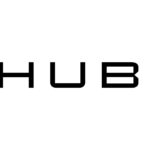New research from The Standard has revealed Gen Z’s goals and values generally align with many of the benefits typically offered by employers.
In its latest study, the perception of HR leaders’ thoughts on what Gen Z wants from employers and their benefits programs was examined.
A third-party research firm conducted a 20-minute survey of 1,250 Gen Z full-time workers (or soon-to-be workers) and found that many HR decision-makers underestimate the value Gen Z places on retirement plans and paid family and medical leave as well as life, supplemental, dental and disability insurance.
Only 12 percent of HR leaders say Gen Z ranks life insurance as “extremely valuable,” but 53 percent of Gen Z characterize it that way, the research found.
Both, Gen Z and HR leaders agree medical insurance is Gen Z’s most valued benefit.
After that, there’s less alignment, the analysis found.
Gen Zers indicate their second and third most valued benefits are paid family and medical leave and retirement savings plans.
HR decision-makers, on the other hand, say Gen Z ranks flextime, remote work and student loan repayment as No. 2 and No. 3 (with remote work and student loan repayment tying for third).
Earning and saving are more important to Gen Z than HR leaders think while paying off debt is less important to this age group than HR decision-makers say it is.
Of the HR leaders surveyed, 57 percent indicate saving is a financial goal for Gen Z in contrast to 79 percent of Gen Z who say the same.
While 59 percent of HR leaders think paying off debt is a goal for Gen Z, only 37 percent of Gen Z agree, the analysis found.
“Gen Z’s focus on strengthening finances and preparing for the future is encouraging and an area where employers and employees can partner. It’s a matter of ensuring we’re communicating about benefits in ways all age groups understand,” said Melissa Oliver-Janiak, second vice president of Total Rewards in Human Resources at The Standard. “That can mean targeting specific messages to different cohorts.”
“The research shows employers can avoid costly benefits overhauls by meeting Gen Z where they are. That includes offering more effective messaging on existing benefits and using financial literacy as a low-cost way to partner with benefits providers,” the report added.





















 Insurance Groundhogs Warming Up to Market Changes
Insurance Groundhogs Warming Up to Market Changes  What Analysts Are Saying About the 2026 P/C Insurance Market
What Analysts Are Saying About the 2026 P/C Insurance Market  Chubb CEO Greenberg on Personal Insurance Affordability and Data Centers
Chubb CEO Greenberg on Personal Insurance Affordability and Data Centers  Berkshire-owned Utility Urges Oregon Appeals Court to Limit Wildfire Damages
Berkshire-owned Utility Urges Oregon Appeals Court to Limit Wildfire Damages 